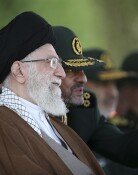[Editorial] Practical Approach to National Interest
[Editorial] Practical Approach to National Interest
Posted March. 21, 2003 22:24,
The world is now fighting two wars. We worry less about Baghdad itself, a city thrown into an inferno by carpet bombing. Looking at the world sharply divided by pros and cons over the Iraq war, we worry more about the dark cloud looming over the future of the world and the human race. In this respect, South Korea has been also thrown into the center of the war. Rather, South Korea is a semi-party to the war, confronting face to face with North Korea, which is hysterical about the possibility that it might become another Iraq.
Thus, it does not help us at all, just talking and arguing over the right and wrong of the ongoing war. It`s high time to mull over what would be best and most practical for the prosperity and safety of our nation. Should it be hard to find the best, we could figure out the second best, or, at least, the less of the two evils. We also have to ponder over what we should do once the war is over, when a big storm will rock the whole world. Dividing sides along political orientation or tendency will not bring us anything.
The political leaders of our society seem to be approaching and responding to the war practically. President Roh issued a statement in support of the Bush administration, stressing national interest. The opposition Grand National Party promised its bipartisan support for the President`s position. Moreover, the National Assembly swiftly approved the bill for sending South Korean noncombatant troops to help the United States. Furthermore, President Roh mentioned a turning point in the ROK-US relationship, indicating his intent to restore the alliance between South Korea and the United States that has been tainted in the past year.
Citizens are engaged in a heated debate, grouping themselves into two main groups. This event demonstrates that our society has become much more mature. However, talking is one thing, and thinking about the national interest is another. They should not damage national interest, engulfed in their own logic and cause. Either side, obsessed with its ideology and partisanship, should not attempt to force the other to choose one over the other. It will only end up in disaster.
When a matter is of such importance that our livelihood and future are hinged on it, we should be able to put things into perspective and open ourselves up to different voices. Actually, we must do it in that way. Then, the Iraq war would come to us not as a crisis, but as an opportunity.







